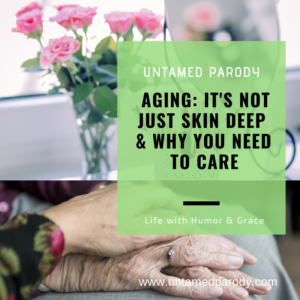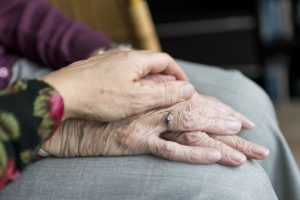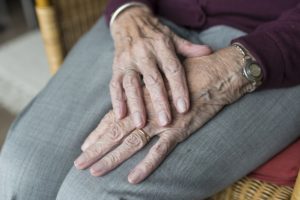
NOTE: THIS IS NOT AN ARTICLE ABOUT U.S. POLITICAL OR ECONOMIC CLIMATE. POLITICAL COMMENTARY/COMMENTS ARE NOT WELCOME!
I had a hard time coming up with the name for this post…I wanted to call it “WAKE UP!” But this isn’t yet another story about skincare or the next great fix to look AWAKE. You see folks…aging is way more than skin deep and it matters. It’s a much, much bigger picture….and it’s not looking good.
If you’ve read any of my posts, or perhaps found me on LinkedIn, you know that I’ve spent the last eight years in the senior living industry. Prior to that, I was navigating the world of aging services for my parents and father-in-law. Let’s say I’ve been immersed for the last 15 years. Folks, we are in the midst of a caregiver crisis, and for the first time I worry about how my future care needs will be met….and I’m not alone.
Generations by the Numbers
At every turn, the topic of our aging population is constant. So what’s the big deal? While everyone has heard of the various generations, what’s typically missed is their impact on the US economy, particularly our healthcare system. That’s what has everyone talking, and it is indeed a big deal.
Here’s the forecast to keep your eye on. And, by the way, for the first time in history there are FIVE generations simultaneously in the workplace!
- Silent Generation – born 1925-1945, the World War II generation. Approximately 25million are alive today, but WWII veterans are dying at a rate of over 1,000 per day. These are the majority current consumers of healthcare, community- and home-based services.
- Baby Boomers – born 1946-1964, the largest wave of aging Americans in history – “The Silver Tsunami”. Today, over 77million fit into the Boomer category with over 46million of them over the age of 65.
Those over the age of 65 are the largest consumers of healthcare with a projected annual growth of 5.5% to over $6trillion, 2018-2027. (attribution: National Health Expenditures)
- The Generation X – born 1966-1976 and currently number 65million. They’ll begin turning 80 in 2046, just 28 years from now.
- The Millennials (Generation Y, Echo Boomers) – born 1977-2006 currently number 83 million. They’ll begin to turn 80 in 2057, just 38 years from now.
The Dementia Factor
By 2050, the number of people with some form of dementia is estimated to triple to over 15million, and by some estimates that number is too low. Why the tripling? First, dementia has a primary age relationship. The vast majority of people with some form of dementia are 1) over the age of 80, or 2) have vascular dementia caused by a history of heart attacks and strokes, both of which also have a primary age relationship. Also impacting the numbers are earlier and more accurate formal diagnoses which are believed to true-up the numbers over time. As of yet there is no surefire prevention, no proven method of slowing the progression of the disease, and no cure. The healthcare impact is protracted with this group. Then add the layer of longer life expectancy….
Why It Matters
By 2060, the United States will have over 98million people over the age 65 straining our healthcare system and our ability to care for them in their homes or in community-based settings. The problem? There aren’t enough people to take care of our aging population. Period. There.are.not.enough. While nursing schools are graduating at high numbers, more nurses are leaving the profession or retiring altogether increasing the deficict. There was also a time when the health industry was flush with direct care workers (caregivers, CNAs, personal assistants and the like…non-family caregivers). That, too, is no more and students are not entering certification programs following high school at high enough numbers to even make a dent in the gap. As I write this (March 2019) there are currently over 6,000 caregiver/CNA/personal assistant positions open in the state of Wisconsin alone. And it’s getting worse.
Some families will have the capacity of time and money to take care of their loved ones in their home. But, the vast majority, some estimate as much as 75%, won’t. They’ll need the services of in-home care or will move to a community-based setting. Folks, I’ll say this again….there are not, and will not be, enough direct care workers (paid professionals – caregivers, CNAs, personal assistants) to care for people needing services regardless of setting. 
There are a number of factors impacting this continually widening gap between supply and demand. The fact of the matter is, being a direct care worker is damn hard work – it’s physically exhausting, mentally taxing, and it’s emotionally draining. They do the hardest work and are the lowest paid, averaging just over $11 per hour on average.
Before someone blows a gasket about some horror story they heard about or read in the media, STOP. Those situations are absolutely the exception, of that I’m sure. Like any profession, there are some dogs but believe me, they don’t last long. The vast majority are amazing people whose only goal is to make every day the best day possible for those in their care, while doing a job that’s oftentimes kinda gross!
Here’s your assignment
If you are a non-family caregiver…thank you for all you do to provide the best quality of life possible to those you care for. I have worked with you, cheered with you, and cried with you. You took amazing care of my dad, mom, father-in-law, aunts, and grandmothers, and made the last chapter of their life a quality chapter. I was always proud to call you “my care partners” when I worked in community.
If you know a non-family caregiver, or have a spouse, friend, parent, neighbor being cared for by a non-family caregiver, thank them for what they do. Help them by supporting them, thanking them often. Help them understand your loved one and how to best care for them with dignity and grace. And, understand the rollercoaster of emotions you experience as your loved one declines or passes away, they experience right along with you.
If you know a student considering the healthcare field, encourage them to become a caregiver first to learn from the trenches. It will be a humbling and character-building experience, and will teach them the importance of aging with dignity. I guarantee whatever health field they ultimately go into they will be stronger and better for the experience.
Next up
I’m starting a series on how to navigate senior options, what types of services are available, what might be some steps to take, how do you know when to bring in outside caregivers, and how to select a community-based setting. Whether you’re in your 20s or in your 80s, this will be important information arrows to have in your quiver for yourself, a loved one or friend. If you have a specific question or topic you’d like me to address, please comment below and I’ll be sure to include it.
“I’m kind of comfortable with getting older, because it’s better than the other option, which is being dead. So I’ll take getting older.” ~George Clooney
